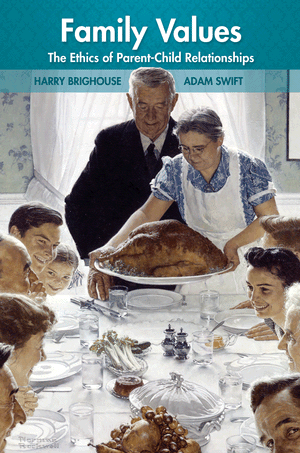At the moment, I’m reading my way through David Miller’s new *Strangers in our Midst* and also getting very exercised about the UK’s Brexit referendum (to the point where I’m waking at night and worrying about it). My siblings and I have all benefited from the EU’s free movement rights, my children both have non-British EU partners, we think of ourselves as Europeans. So for me, the threat of Brexit is a threat of lost identity, of something that has been there all my adult life just disappearing overnight. And so I’m feeling pretty resentful towards my fellow citizens who might vote to cut that tie and thereby endanger the security and family life of millions of EU citizens in the UK and UK citizens elsewhere in the EU.
One of Miller’s arguments is a familiar one about social trust, about how welfare states depend for their stability on such trust and that the increasing diversity that immigration brings tends to undermine support for redistributive programmes. This lack of trust gets expressed in anger about stories that immigrants are ahead in the queue for social housing, that they are a drain on health and education services, that they are getting “something for nothing”, and so forth. Needless to say, most of such stories are false. Nevertheless, there may be elements in the design of the UK’s welfare state and its relatively non-contributory character that fuel such anxieties.
Here’s the thing. Those voting for Brexit out of resentment against immigration are disproportionately the elderly poor whites who don’t pay much in but who benefit from those public services. A predictable consequence of them getting what they want is that the fiscal base for those services will be eroded and that either they will have to be cut or taxes will have to be increased. This is because those EU immigrants are, in fact, paying more in taxes than they are taking in services. (Actually, the UK is free-riding in a big way, as it never paid for the cost of educating and training those workers.)
When I take those political affiliation surveys, I always say I’m willing to pay higher taxes. But now the devil on my shoulder is saying “why should you pay higher taxes to replace the taxes that were paid by EU migrants? Those idiots have brought it on themselves, let them now suffer the consequences”. An ugly thought, but I’m guessing that if I’m having it then I’m not alone. The UK’s EU referendum has eroded social trust more than immigration per se ever did. It poses the question of what citizens owe to one another in pretty stark terms. If people could mitigate the need for higher taxes by accepting immigrants and they choose not to do so, why should their wealthier fellow citizens bear the cost of their choices?

